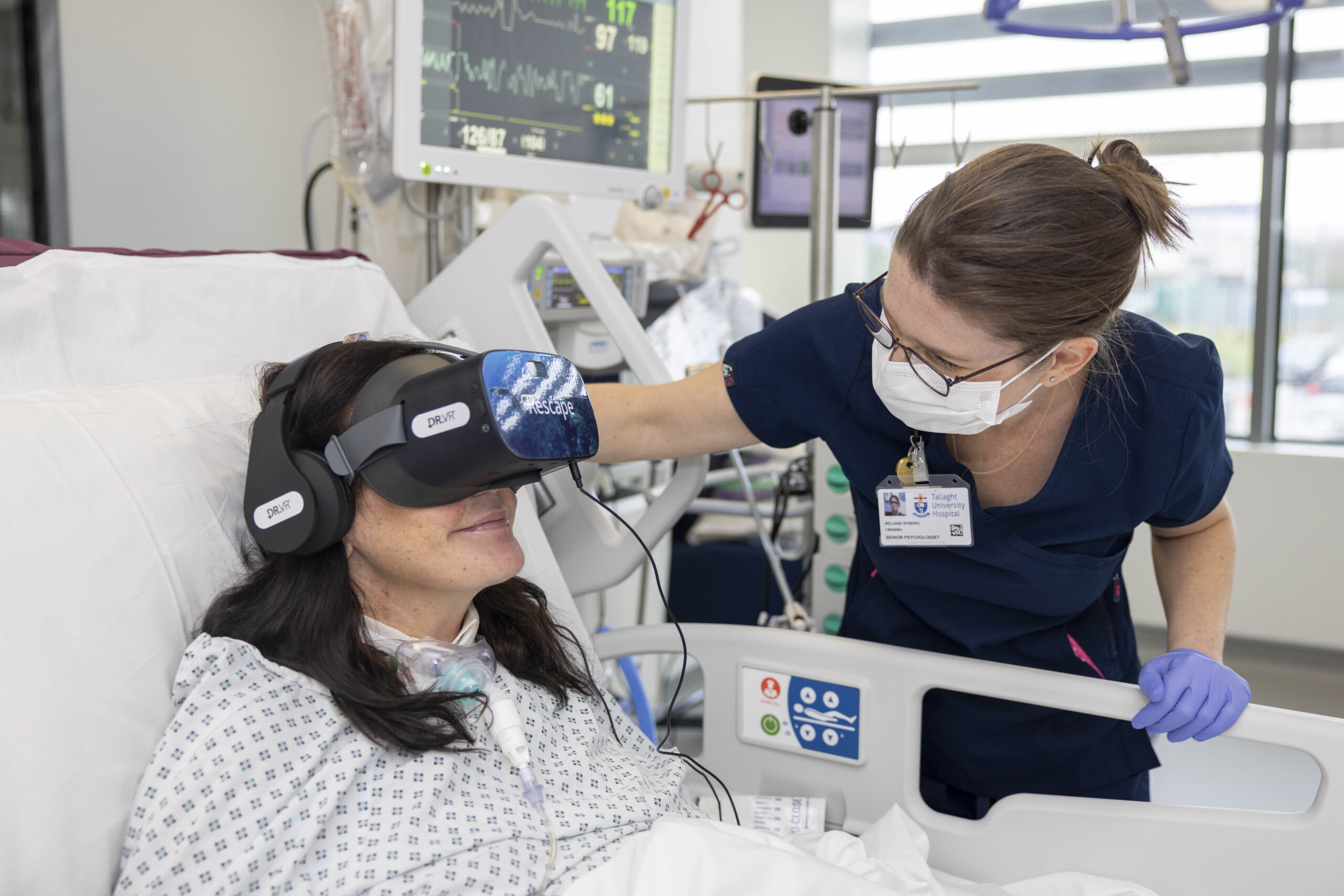Innovators

Principal Specialist Clinical Psychologist working in Critical Care
Dr. Melanie Ryberg
Dr. Melanie Ryberg is a Principal Specialist Clinical Psychologist working in Critical Care at TUH. It is her role to identify and meet the psychological needs of patients and their families during an ICU admission.
In terms of innovation, Melanie’s focus has been on helping the 80% of patients in ICU who suffer from delirium, a condition which causes confusion and a lack of awareness of someone’s surroundings. Melanie says, “We know delirium is a significant issue in critical care, and is associated with a range of bad outcomes including length of stay, cognitive impairment and mortality.”
To improve the care provided to these patients she has introduced a range of what she describes as “orientation and humanisation measures.”
These have included the use of a ‘digital whiteboard’ in ICU to enable clinicians the flexibility and creativity to display key information for patients (and staff) relevant to the patient’s stage of recovery (i.e. basic orientation information for early stages of wakefulness, simple things such as reminding the patient where they are, what day/date it is).
Melanie also ensures that family photographs are on display to help patients feel more connected to the important people in their lives between visits as well as making sure staff are given information to help them really understand what matters most to the patient in their care.
Melanie says “For me, the biggest learning has been the sky is the limit when it comes to ideas! I would encourage anyone with an idea to get it down on paper and approach the Innovation Team who will work alongside you to put a shape on the idea and make it happen. Anyone working on the frontline has valuable experience and insights into how things can be improved for patients.”
In the future, Melanie’s plan is to continue to enhance psychological supports in ICU whether it be for a patient with delirium or someone who may be in need of post-ICU treatment or entering their end of life care.
